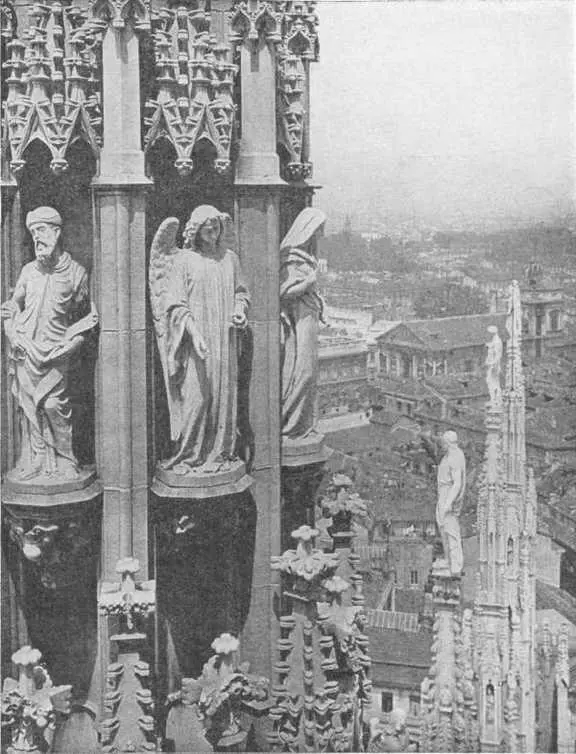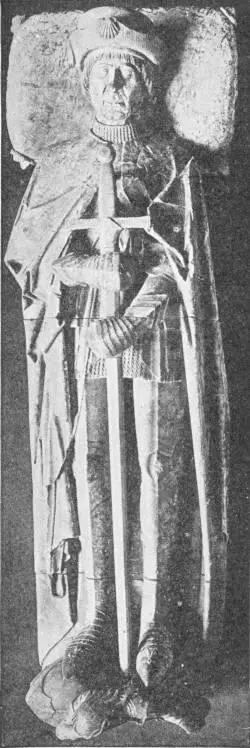Herbert Wells - A Short History of the World
Здесь есть возможность читать онлайн «Herbert Wells - A Short History of the World» весь текст электронной книги совершенно бесплатно (целиком полную версию без сокращений). В некоторых случаях можно слушать аудио, скачать через торрент в формате fb2 и присутствует краткое содержание. Год выпуска: 2011, Жанр: История, на английском языке. Описание произведения, (предисловие) а так же отзывы посетителей доступны на портале библиотеки ЛибКат.
- Название:A Short History of the World
- Автор:
- Жанр:
- Год:2011
- ISBN:нет данных
- Рейтинг книги:4 / 5. Голосов: 1
-
Избранное:Добавить в избранное
- Отзывы:
-
Ваша оценка:
- 80
- 1
- 2
- 3
- 4
- 5
A Short History of the World: краткое содержание, описание и аннотация
Предлагаем к чтению аннотацию, описание, краткое содержание или предисловие (зависит от того, что написал сам автор книги «A Short History of the World»). Если вы не нашли необходимую информацию о книге — напишите в комментариях, мы постараемся отыскать её.
A Short History of the World — читать онлайн бесплатно полную книгу (весь текст) целиком
Ниже представлен текст книги, разбитый по страницам. Система сохранения места последней прочитанной страницы, позволяет с удобством читать онлайн бесплатно книгу «A Short History of the World», без необходимости каждый раз заново искать на чём Вы остановились. Поставьте закладку, и сможете в любой момент перейти на страницу, на которой закончили чтение.
Интервал:
Закладка:

MILAN CATHEDRALA COURTYARD IN THE ALHAMBRA
View showing the exquisite carvings characteristic of the 98 spires of the edifice
The consequences of this want of firm definition are to be seen in the whole history of the papacy up to the sixteenth century. From quite early times onward there were disputed elections and two or more men each claiming to be Pope. The church would then be subjected to the indignity of going to the Emperor or some other outside arbiter to settle the dispute. And the career of everyone of the great Popes ended in a note of interrogation. At his death the church might be left headless and as ineffective as a decapitated body. Or he might be replaced by some old rival eager only to discredit and undo his work. Or some enfeebled old man tottering on the brink of the grave might succeed him.
It was inevitable that this peculiar weakness of the papal organization should attract the interference of the various German princes, the French King, and the Norman and French Kings who ruled in England; that they should all try to influence the elections, and have a Pope in their own interest established in the Lateran Palace at Rome. And the more powerful and important the Pope became in European affairs, the more urgent did these interventions become. Under the circumstances it is no great wonder that many of the Popes were weak and futile. The astonishing thing is that many of them were able and courageous men.
One of the most vigorous and interesting of the Popes of this great period was Innocent III (1198-1216) who was so fortunate as to become Pope before he was thirty-eight. He and his successors were pitted against an even more interesting personality, the Emperor Frederick II; Stupor mundi he was called, the Wonder of the world. The struggle of this monarch against Rome is a turning place in history. In the end Rome defeated him and destroyed his dynasty, but he left the prestige of the church and Pope so badly wounded that its wounds festered and led to its decay.
Frederick was the son of the Emperor Henry VI and his mother was the daughter of Roger I, the Norman King of Sicily. He inherited this kingdom in 1198 when he was a child of four years. Innocent III had been made his guardian. Sicily in those days had been but recently conquered by the Normans; the Court was half oriental and full of highly educated Arabs; and some of these were associated in the education of the young king. No doubt they were at some pains to make their point of view clear to him. He got a Moslem view of Christianity as well as a Christian view of Islam, and the unhappy result of this double system of instruction was a view, exceptional in that age of faith, that all religions were impostures. He talked freely on the subject; his heresies and blasphemies are on record.
As the young man grew up he found himself in conflict with his guardian. Innocent III wanted altogether too much from his ward. When the opportunity came for Frederick to succeed as Emperor, the Pope intervened with conditions. Frederick must promise to put down heresy in Germany with a strong hand. Moreover he must relinquish his crown in Sicily and South Italy, because otherwise he would be too strong for the Pope. And the German clergy were to be freed from all taxation. Frederick agreed but with no intention of keeping his word. The Pope had already induced the French King to make war upon his own subjects in France, the cruel and bloody crusade against the Waldenses; he wanted Frederick to do the same thing in Germany. But Frederick being far more of a heretic than any of the simple pietists who had incurred the Pope’s animosity, lacked the crusading impulse. And when Innocent urged him to crusade against the Moslim and recover Jerusalem he was equally ready to promise and equally slack in his performance.

A TYPICAL CRUSADER: DON RODRIGO DE CARDENAS
From the Church of S. Pedro at Ocana, Spain
(In the Victoria and Albert Museum)
Having secured the imperial crown Frederick II stayed in Sicily, which he greatly preferred to Germany as a residence, and did nothing to redeem any of his promises to Innocent III, who died baffled in 1216.
Honorius III, who succeeded Innocent, could do no better with Frederick, and Gregory IX (1227) came to the papal throne evidently resolved to settle accounts with this young man at any cost. He excommunicated him. Frederick II was denied all the comforts of religion. In the half-Arab Court of Sicily this produced singularly little discomfort. And also the Pope addressed a public letter to the Emperor reciting his vices (which were indisputable), his heresies, and his general misconduct. To this Frederick replied in a document of diabolical ability. It was addressed to all the princes of Europe, and it made the first clear statement of the issue between the Pope and the princes. He made a shattering attack upon the manifest ambition of the Pope to become the absolute ruler of all Europe. He suggested a union of princes against this usurpation. He directed the attention of the princes specifically to the wealth of the church.
Having fired off this deadly missile Frederick resolved to perform his twelve-year-old promise and go upon a crusade. This was the Sixth Crusade (1228). It was as a crusade, farcical. Frederick II went to Egypt and met and discussed affairs with the Sultan. These two gentlemen, both of sceptical opinions, exchanged congenial views, made a commercial convention to their mutual advantage, and agreed to transfer Jerusalem to Frederick. This indeed was a new sort of crusade, a crusade by private treaty. Here was no blood splashing the conqueror, no “weeping with excess of joy.” As this astonishing crusader was an excommunicated man, he had to be content with a purely secular coronation as King of Jerusalem, taking the crown from the altar with his own hand—for all the clergy were bound to shun him. He then returned to Italy, chased the papal armies which had invaded his dominions back to their own territories, and obliged the Pope to grant him absolution from his excommunication. So a prince might treat the Pope in the thirteenth century, and there was now no storm of popular indignation to avenge him. Those days were past.
In 1239 Gregory IX resumed his struggle with Frederick, excommunicated him for a second time, and renewed that warfare of public abuse in which the papacy had already suffered severely. The controversy was revived after Gregory IX was dead, when Innocent IV was Pope; and again a devastating letter, which men were bound to remember, was written by Frederick against the church. He denounced the pride and irreligion of the clergy, and ascribed all the corruptions of the time to their pride and wealth. He proposed to his fellow princes a general confiscation of church property—for the good of the church. It was a suggestion that never afterwards left the imagination of the European princes.
We will not go on to tell of his last years. The particular events of his life are far less significant than its general atmosphere. It is possible to piece together something of his court life in Sicily. He was luxurious in his way of living, and fond of beautiful things. He is described as licentious. But it is clear that he was a man of very effectual curiosity and inquiry. He gathered Jewish and Moslem as well as Christian philosophers at his court, and he did much to irrigate the Italian mind with Saracenic influences. Through him the Arabic numerals and algebra were introduced to Christian students, and among other philosophers at his court was Michael Scott, who translated portions of Aristotle and the commentaries thereon of the great Arab philosopher Averroes (of Cordoba). In 1224 Frederick founded the University of Naples, and he enlarged and enriched the great medical school at Salerno University. He also founded a zoological garden. He left a book on hawking, which shows him to have been an acute observer of the habits of birds, and he was one of the first Italians to write Italian verse. Italian poetry was indeed born at his court. He has been called by an able writer, “the first of the moderns,” and the phrase expresses aptly the unprejudiced detachment of his intellectual side.
Читать дальшеИнтервал:
Закладка:
Похожие книги на «A Short History of the World»
Представляем Вашему вниманию похожие книги на «A Short History of the World» списком для выбора. Мы отобрали схожую по названию и смыслу литературу в надежде предоставить читателям больше вариантов отыскать новые, интересные, ещё непрочитанные произведения.
Обсуждение, отзывы о книге «A Short History of the World» и просто собственные мнения читателей. Оставьте ваши комментарии, напишите, что Вы думаете о произведении, его смысле или главных героях. Укажите что конкретно понравилось, а что нет, и почему Вы так считаете.








